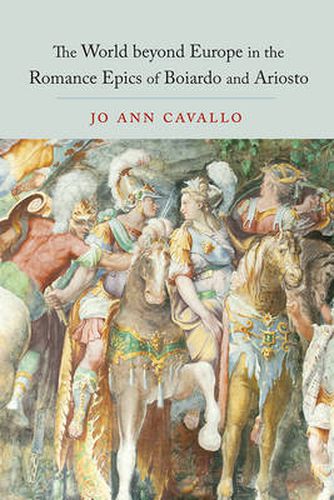Readings Newsletter
Become a Readings Member to make your shopping experience even easier.
Sign in or sign up for free!
You’re not far away from qualifying for FREE standard shipping within Australia
You’ve qualified for FREE standard shipping within Australia
The cart is loading…






This study offers a sustained examination of the presentation of eastern Asia, the Middle East, and northern Africa in two of the most important chivalric epics of the fifteenth and sixteenth centuries, Matteo Maria Boiardo’s Orlando Innamorato (1495) and Ludovico Ariosto’s Orlando Furioso (1516). Comparing the narratological strategies used to depict non-European characters in these stories, Jo Ann Cavallo argues that Boiardo’s cosmopolitan vision of humankind increasingly became replaced by Ariosto’s crusading ideology, which emphasized a binary opposition between Christians and Saracens.
Cavallo addresses the poems’ mixing of imaginary sites and the geographical reality of a rapidly expanding globe, contextualizing them against current events and concerns, as well as ancient, medieval, and Renaissance texts influential at the time. As the prize committee for the Scaglione Publication Award for a Manuscript in Italian Literary Studies noted: This articulate, engaging, and well-documented study represents an important work of scholarship in its cross-cultural considerations of Italian Renaissance epic poetry.
$9.00 standard shipping within Australia
FREE standard shipping within Australia for orders over $100.00
Express & International shipping calculated at checkout
This study offers a sustained examination of the presentation of eastern Asia, the Middle East, and northern Africa in two of the most important chivalric epics of the fifteenth and sixteenth centuries, Matteo Maria Boiardo’s Orlando Innamorato (1495) and Ludovico Ariosto’s Orlando Furioso (1516). Comparing the narratological strategies used to depict non-European characters in these stories, Jo Ann Cavallo argues that Boiardo’s cosmopolitan vision of humankind increasingly became replaced by Ariosto’s crusading ideology, which emphasized a binary opposition between Christians and Saracens.
Cavallo addresses the poems’ mixing of imaginary sites and the geographical reality of a rapidly expanding globe, contextualizing them against current events and concerns, as well as ancient, medieval, and Renaissance texts influential at the time. As the prize committee for the Scaglione Publication Award for a Manuscript in Italian Literary Studies noted: This articulate, engaging, and well-documented study represents an important work of scholarship in its cross-cultural considerations of Italian Renaissance epic poetry.